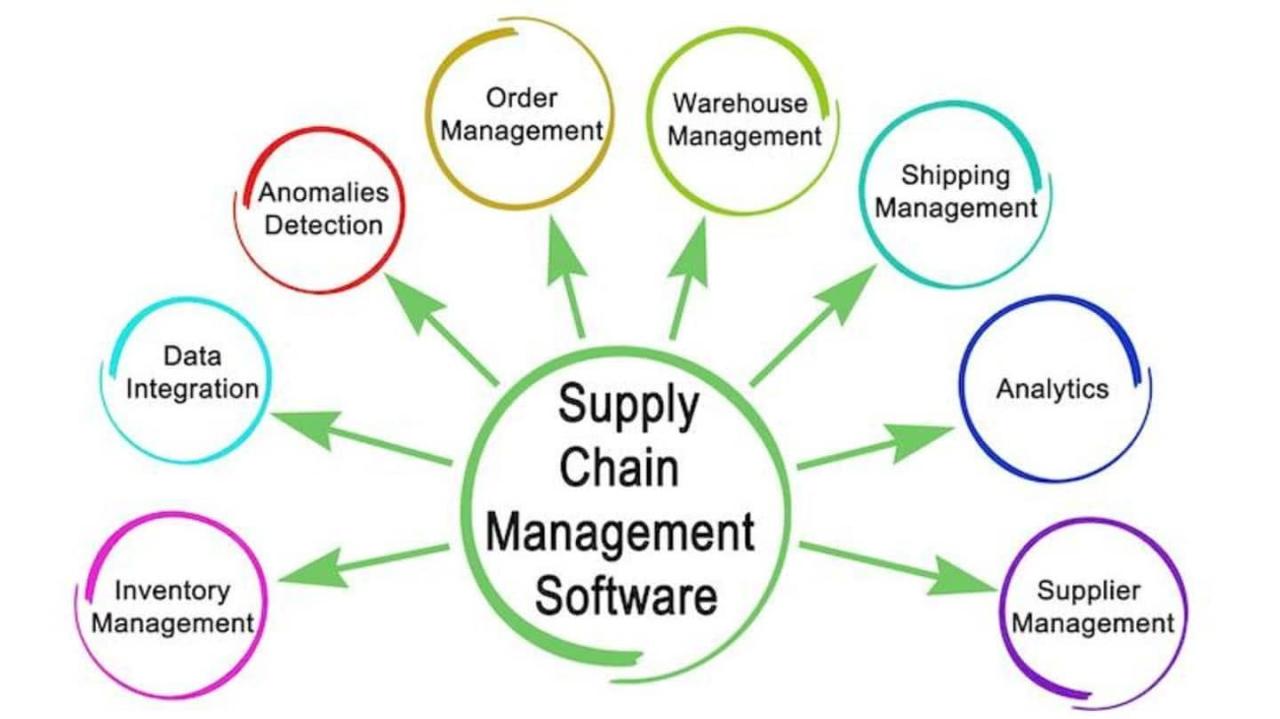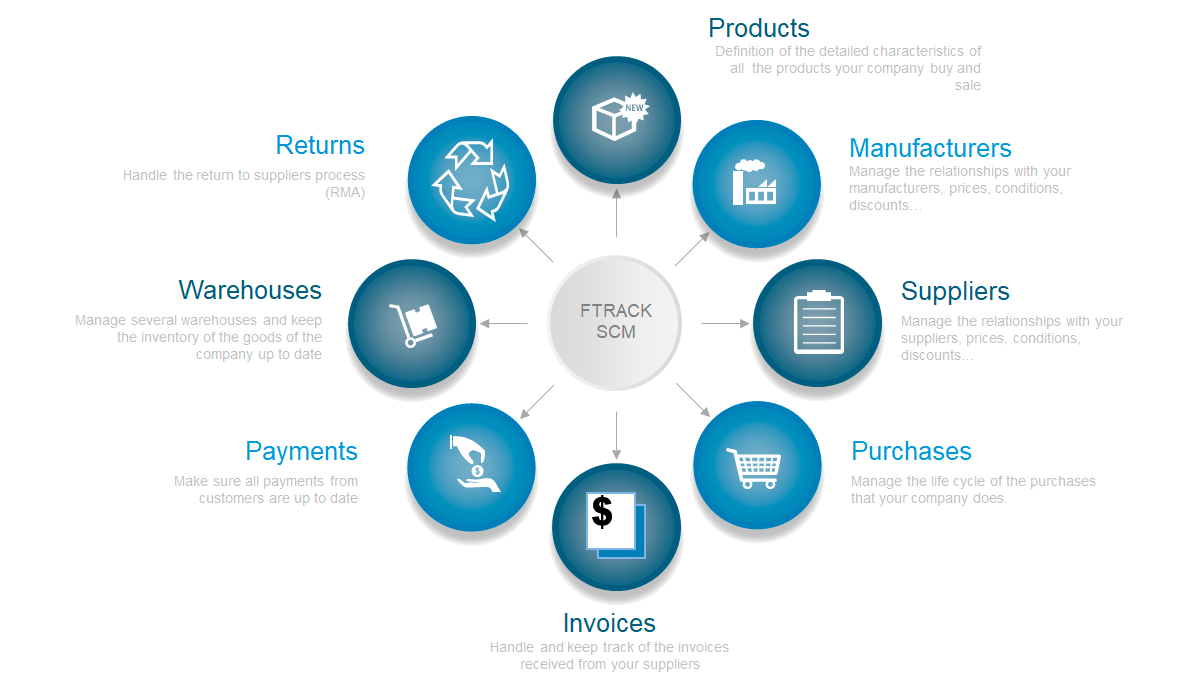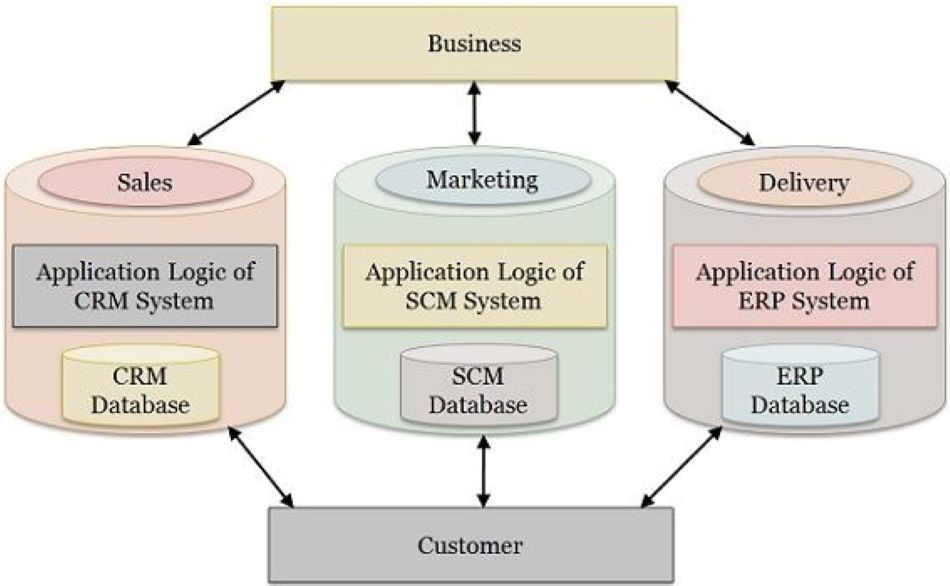scm erp sets the stage for this enthralling narrative, offering readers a glimpse into a story that is rich in detail and brimming with originality from the outset. Supply Chain Management (SCM) and Enterprise Resource Planning (ERP) systems are fundamental frameworks that drive efficiency and innovation in modern organizations. By integrating these two powerful systems, businesses can optimize workflows, enhance communication, and streamline processes, ultimately leading to increased profitability and customer satisfaction.
Understanding the key features and functionalities of SCM and ERP systems is vital for organizations looking to thrive in today’s competitive landscape. These systems not only facilitate better resource management but also ensure that companies can respond swiftly to market demands. This overview will delve into the intrinsic benefits of implementing SCM and ERP, explore the challenges faced during integration, and highlight future trends that promise to reshape the way these systems operate.
Overview of SCM and ERP Systems
In today’s dynamic business landscape, organizations must integrate various functions to remain competitive and efficient. Supply Chain Management (SCM) and Enterprise Resource Planning (ERP) systems play crucial roles in achieving this integration. By understanding their fundamental concepts, key features, and the ways they interconnect within businesses, organizations can enhance their operational effectiveness.Supply Chain Management involves the oversight of materials, information, and finances as they move from supplier to manufacturer to wholesaler to retailer to consumer.
It encompasses the planning and management of all activities involved in sourcing, procurement, conversion, and logistics management. On the other hand, Enterprise Resource Planning refers to integrated management of core business processes, facilitated by software and technology. ERP systems help streamline processes and information across the organization, providing a unified platform for data management.
For businesses looking to optimize their operations, exploring infor erp ln can be a game changer. This solution offers integrated management capabilities, allowing companies to streamline processes and enhance productivity. By adopting advanced ERP systems, organizations can significantly improve decision-making, mitigate risks, and boost overall efficiency.
Key Features and Functionalities of SCM and ERP Systems, Scm erp
Both SCM and ERP systems boast distinct features that enable businesses to operate efficiently. Understanding these functionalities is crucial for organizations looking to optimize their operations. The following points Artikel the essential features and functionalities of SCM and ERP systems:
- SCM Features:
- Demand Planning: Anticipating future customer demand and adjusting supply accordingly.
- Inventory Management: Monitoring and controlling inventory levels to reduce costs and improve service levels.
- Supplier Collaboration: Enhancing relationships with suppliers for better resource allocation and information exchange.
- Logistics Management: Efficiently managing transportation and warehousing to minimize costs and optimize delivery.
- ERP Features:
- Financial Management: Streamlining financial processes, including accounting, budgeting, and reporting.
- Human Resource Management: Managing employee records, payroll, recruitment, and performance evaluation.
- Customer Relationship Management (CRM): Enhancing customer interactions and improving satisfaction through data analysis.
- Product Lifecycle Management: Managing the entire lifecycle of a product from inception to disposal.
Integration of SCM and ERP Systems
The integration of SCM and ERP systems is pivotal for organizations aiming for streamlined operations and enhanced decision-making capabilities. This integration allows for better coordination between different departments, ensuring that supply chain activities are aligned with overall business objectives. Several benefits arise from this integration:
- Real-time Data Sharing: SCM and ERP integration facilitates instant access to real-time data across functions, promoting informed decision-making.
- Improved Visibility: Organizations gain enhanced visibility into their operations, allowing for proactive management of resources and processes.
- Cost Efficiency: By streamlining processes and minimizing redundancies, businesses can significantly reduce operational costs.
- Enhanced Collaboration: Integrated systems foster collaboration between departments, leading to innovation and improved problem-solving.
“Efficient integration of SCM and ERP systems transforms operational complexities into streamlined workflows, enhancing overall business performance.”
The synergy between SCM and ERP systems not only optimizes supply chain activities but also aligns them with the broader goals of the enterprise. This cohesive approach empowers organizations to respond swiftly to market changes, ultimately driving growth and competitiveness.
Benefits of Implementing SCM and ERP Solutions

The integration of Supply Chain Management (SCM) and Enterprise Resource Planning (ERP) systems brings a multitude of benefits that can significantly elevate an organization’s operational effectiveness and customer satisfaction levels. By streamlining processes and improving data visibility, these systems enable businesses to respond more adeptly to market demands and operational challenges.Adopting SCM and ERP solutions allows organizations to enhance collaboration across various departments and stakeholders, ultimately leading to improved decision-making and efficiency.
Small and medium enterprises often face unique challenges, making the choice of an effective solution like erp systeme kmu essential. This ERP system caters specifically to the needs of KMUs, providing tailored functionalities that streamline operations and promote scalability. By leveraging such systems, businesses can ensure they remain competitive and responsive to market demands.
The following sections highlight the operational efficiencies gained through these implementations and their impact on customer satisfaction.
Operational Efficiencies Achieved through SCM and ERP
Implementing SCM and ERP systems provides organizations with the tools necessary to optimize their operations. The following are key operational efficiencies realized:
- Improved Inventory Management: SCM and ERP systems enhance visibility into inventory levels, reducing excess stock and minimizing stockouts, thus ensuring products are available when needed.
- Streamlined Processes: Automation of repetitive tasks accelerates workflows and minimizes human error, allowing employees to focus on higher-value activities.
- Enhanced Supply Chain Visibility: Real-time data sharing between suppliers, manufacturers, and distributors leads to better coordination and timely decision-making.
- Cost Reductions: Increased efficiency results in lower operational costs, including reduced labor expenses and minimized waste throughout the supply chain.
- Better Demand Forecasting: Advanced analytics tools within ERP systems help organizations predict customer demand more accurately, improving production planning and resource allocation.
Impact of SCM and ERP on Customer Satisfaction
Integrating SCM and ERP solutions not only optimizes internal processes but also significantly enhances customer satisfaction and service levels. A few ways these systems contribute include:
- Faster Order Fulfillment: With streamlined operations, orders can be processed and shipped more quickly, resulting in timely deliveries and improved customer satisfaction.
- Personalized Customer Experiences: Access to customer data enables organizations to tailor their services and offerings to meet individual customer preferences and needs.
- Increased Product Quality: Quality control processes can be enhanced by integrating supply chain data, leading to fewer defects and higher customer trust.
- Enhanced Communication: SCM and ERP systems facilitate better communication with customers regarding order status, shipment tracking, and estimated delivery times.
- Proactive Customer Service: Organizations can identify potential issues before they escalate, allowing for proactive resolutions that keep customers satisfied.
“The integration of SCM and ERP solutions is vital for organizations aiming to remain competitive in today’s fast-paced market.”
Challenges in SCM and ERP Integration

Integrating Supply Chain Management (SCM) and Enterprise Resource Planning (ERP) systems presents numerous challenges that can hinder the seamless flow of operations. As businesses strive to optimize their processes and gain a competitive edge, they often encounter various obstacles that can complicate integration efforts. Understanding these challenges is crucial for organizations to navigate the intricacies of combining these powerful systems.The integration of SCM and ERP systems can be impeded by a range of factors.
Key challenges include data inconsistency, compatibility issues between different software vendors, resistance to change among employees, and the complexity of aligning business processes. These obstacles not only delay the integration process but can also lead to increased costs and operational inefficiencies if not addressed effectively.
Common Integration Obstacles
Several prevalent obstacles can obstruct the smooth integration of SCM and ERP systems. Addressing these challenges promptly can significantly enhance the likelihood of a successful integration. The following points Artikel the most critical challenges:
- Data Silos: Isolated data across various departments can lead to discrepancies, making it difficult to achieve a unified view of operations. This lack of data consistency hampers decision-making and can affect overall performance.
- Compatibility Issues: Different software solutions may not easily communicate with one another due to varying standards and protocols, complicating integration efforts. Incompatibility can result in higher costs and extended timelines for project completion.
- Employee Resistance: Teams may resist changes to established processes and workflows, fearing disruption and challenges in adapting to new systems. This resistance can lead to lower morale and hinder the success of integration initiatives.
- Complexity of Interdependencies: The intricate relationships between supply chain activities and business operations necessitate thorough analysis and careful planning. Overlooking these interdependencies can lead to misalignment and operational chaos.
Approaches to Overcoming Integration Challenges
Companies have developed various strategies to mitigate the challenges associated with SCM and ERP integration. Identifying the most effective approach can depend on the specific needs and circumstances of the business. The following methods are commonly employed:
- Data Standardization: Implementing data standardization practices can help eliminate discrepancies and ensure that accurate information flows seamlessly between systems. This process involves defining key data elements and establishing uniform formats.
- Choosing the Right Software: Selecting compatible platforms that can easily integrate is critical. Organizations should focus on vendors that offer robust APIs and support integration capabilities to streamline the process.
- Change Management Strategies: Developing comprehensive change management initiatives can help address employee concerns and foster a culture of adaptability. Training sessions and communication can ease transitions and improve acceptance rates.
- Phased Implementation: Adopting a phased approach allows businesses to tackle integration in manageable chunks, reducing risk and facilitating adjustments based on feedback from earlier stages.
Real-Life Case Studies
Understanding the practical implications of integrating SCM and ERP systems can be enhanced through real-world examples. Companies have experienced both success and failure in their attempts to merge these systems, providing valuable lessons for others.One notable case is that of a multinational manufacturing corporation that successfully integrated its ERP and SCM systems. By implementing a phased approach and emphasizing change management, the company reduced lead times by 30% and enhanced overall inventory management.
This strategic alignment led to improved responsiveness to customer demands.Conversely, a retail chain faced significant challenges during its integration efforts, primarily due to data silos and employee resistance. These issues resulted in an extended timeline and budget overruns, ultimately leading to the project’s failure. The experience highlighted the importance of thorough planning and stakeholder engagement in any integration effort.Through understanding the challenges, employing effective strategies, and learning from case studies, businesses can enhance their chances of successful SCM and ERP integration, paving the way for improved operational efficiency and business growth.
Future Trends in SCM and ERP Technologies: Scm Erp

The landscape of Supply Chain Management (SCM) and Enterprise Resource Planning (ERP) is on the brink of a transformative shift, propelled by the rapid advancement of emerging technologies. As businesses strive for efficiency and adaptability in an increasingly complex environment, the integration of innovative solutions will redefine traditional SCM and ERP frameworks. This evolution promises to enhance operational capabilities, improve data accuracy, and drive strategic decision-making.The future of SCM and ERP systems is closely intertwined with several key technologies that are shaping how organizations operate.
These innovations not only streamline processes but also foster an agile approach to managing resources and supply chains. The following innovations are anticipated to have a significant impact on the evolution of SCM and ERP systems in the near future:
Innovations Impacting SCM and ERP
The integration of new technologies holds immense potential for SCM and ERP systems. The following innovations are expected to revolutionize these domains:
- Artificial Intelligence (AI): AI is set to enhance decision-making by analyzing vast data sets to identify patterns and predict future trends. For instance, AI algorithms can optimize inventory levels by predicting demand fluctuations based on historical data.
- Blockchain: The implementation of blockchain technology can improve transparency and traceability within supply chains. This decentralized ledger allows for secure and tamper-proof record-keeping, which is crucial for compliance and quality assurance.
- Internet of Things (IoT): IoT devices facilitate real-time data collection and monitoring of supply chain processes. Sensors embedded in products enable organizations to track movements and conditions, leading to improved logistics management.
- Robotic Process Automation (RPA): RPA streamlines repetitive tasks within SCM and ERP systems, reducing human error and freeing up employees for more strategic roles. For example, automated data entry can enhance efficiency in order processing.
- Cloud Computing: Cloud-based SCM and ERP solutions offer scalability, flexibility, and accessibility. They enable organizations to adapt quickly to market changes without significant upfront investments in infrastructure.
The application of data analytics and AI in SCM and ERP can significantly transform strategies, providing actionable insights and fostering informed decision-making. By leveraging advanced analytics, organizations can enhance forecasting accuracy, optimize resource allocation, and improve customer satisfaction through personalized services.
“Data-driven strategies, powered by analytics and AI, enable organizations to foresee demand changes and respond proactively, ensuring business continuity and competitiveness.”
For example, companies like Amazon utilize data analytics extensively to optimize their supply chains, implementing predictive analytics to assess purchasing trends and stock levels dynamically. This not only enhances efficiency but also improves customer satisfaction by ensuring product availability.In summary, the future trends in SCM and ERP technologies underscore a shift towards more integrated, intelligent systems that empower organizations to operate more effectively in an uncertain marketplace.
Embracing these innovations will be crucial for businesses aiming to thrive in the digital age.